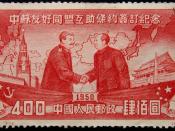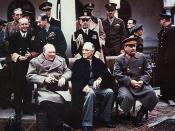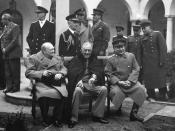Solidarity and its impact on Communism in Poland
Communist ideology comes from Marxist-Leninist philosophy that was started in Russia because of a workers revolution. The revolution in Russia led to the workers' controlling the economy, ultimately leading to a classless society with no discrimination against age, sex, race or sexual orientation ("The rise and fall of Solidarnosc."). In this society, there was public ownership of the means of production, meaning that everyone who worked was an employee and an owner at the same time (Korab-Karpowicz). The Bolsheviks had always planned to introduce communism to Poland because worldwide revolution was also fundamental to their communist ideology. From January of 1947, when communists in Poland won a rigged election until January 1989, when Solidarity candidates win all but one seat open for contestation, Poland was under strict communist rule. For approximately 47 years Poland, like many countries in Eastern Europe was under the direct influence of the Soviet Union.
The formation of the Solidarity (Solidarnosc) movement played a vital role in the overthrowing of Communism in Poland, making the Polish people the first to free themselves from the Soviet Union's stranglehold.
Communism in Poland was different to that of Russia and many other European countries. Firstly, it was imposed upon the people by force. There was no revolution sparking the need for a classless society, there was no social upheaval. The Red Army (Soviet troops) on Stalin's orders, invaded Poland after the battle of Stalingrad (November 1942 - January 1943) reinstating communist organizations and institutions (Wrobel). After the end of World War II, the Yalta Conference (4-11 February 1945) took place, and was attended by Winston Churchill, Franklin D. Roosevelt, and by Joseph Stalin. Poland was one of the main issues at this conference, and it was decided that "free parliamentary elections...



Nice
Very nicely proportioned.
3 out of 4 people found this comment useful.